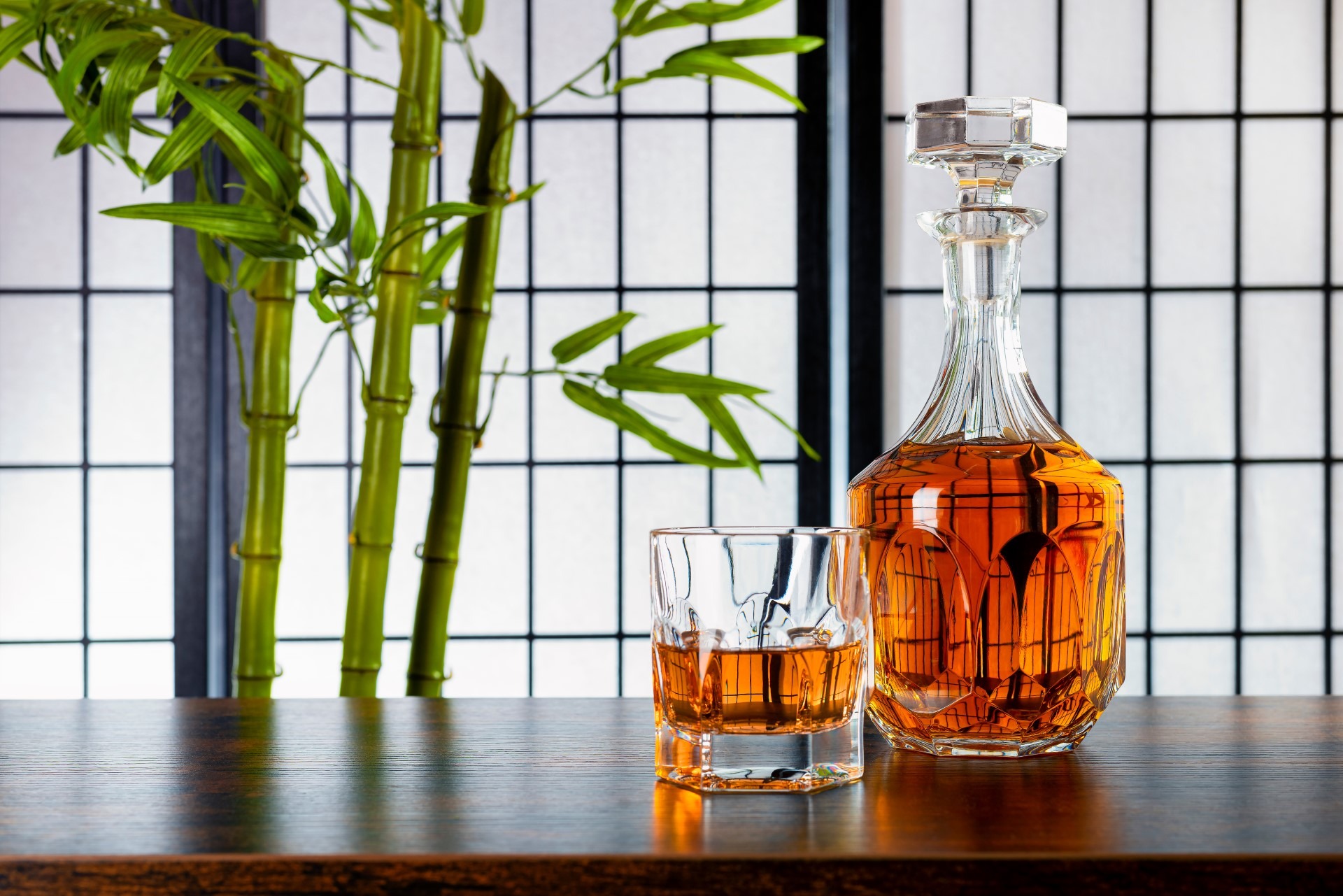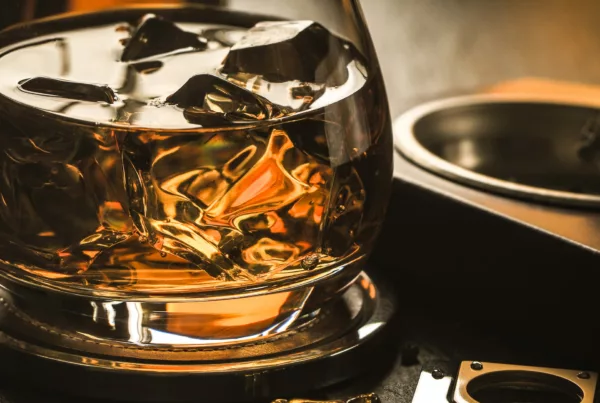
For decades, Scotch whisky has been considered the undisputed king of fine whisky by spirits fans all over the world. However, over the last decade, an increasing number of whisky connoisseurs have become enamored with Japanese whiskies. Although similar to single-malt Scotches in their methods and composition, Japanese whiskies have a character all their own that has captivated the world’s attention.
The history of Japanese whisky stretches back just over a century and is rooted in Scotch whisky. Masataka Taketsuru, a Japanese man, traveled to Scotland in 1918 to learn the trade. After apprenticing at three distilleries, he returned to Japan as the master distiller in 1923, eventually beginning distillation in his own enterprise, in 1936.
Japanese whisky is famous for its blending technique, which combines spirits from different barrels to create a complex and unique whole. Some whiskies are heavily peated, while others are not; different stills help shape different flavors, and the casks—whether of new oak, sherry casks, bourbon casks, or re-charred casks—impart a flavour of their own. With these variables, the distiller has room to innovate beyond its age-statement whiskies.
The environment in which whisky is made is paramount to the flavor it will offer, and in Japan, the difference in weather can be extreme. Japanese summers are hotter than in Scotland, and during the maturation process, some whiskies stored in warehouses experience higher humidity levels. However, the cold winters slow down the aging process of the spirit, giving it a unique character. Japan is also a vast country with a huge variance in climate, depending on where the distillery is located. These differences in climate create a much broader set of styles of whiskies. Different aging conditions then allow the creation of different flavors.
The emphasis on refinement over consistency is a key feature of Japanese whisky production. The Japanese are on a mission to perpetually perfect and refine their whiskies. Their delicate approach to taste is on the softer and more nuanced side than the stronger and bolder tastes of their Scotch counterparts. The Japanese exhibit much self-discipline in this respect, continuing to distinguish themselves as top-notch whisky producers.
While Japanese whisky was slow to take off, its popularity skyrocketed after 2001, when Whisky Magazine honored Nikka’s 10-Year Yoichi as its “Best of the Best.” Other awards followed, and the spirit drew even more attention when Suntory’s Yamazaki Sherry Cask 2013 was named the world’s best whisky by Jim Murray’s Whisky Bible in 2015.
In conclusion, Japanese whisky is more than just Scotch made in Japan. It is a unique and delicate whisky that has captured the hearts of many whisky enthusiasts worldwide. With its emphasis on blending, unique aging techniques, and refined taste, Japanese whisky is sure to continue captivating the hearts of many whisky lovers for years to come.






